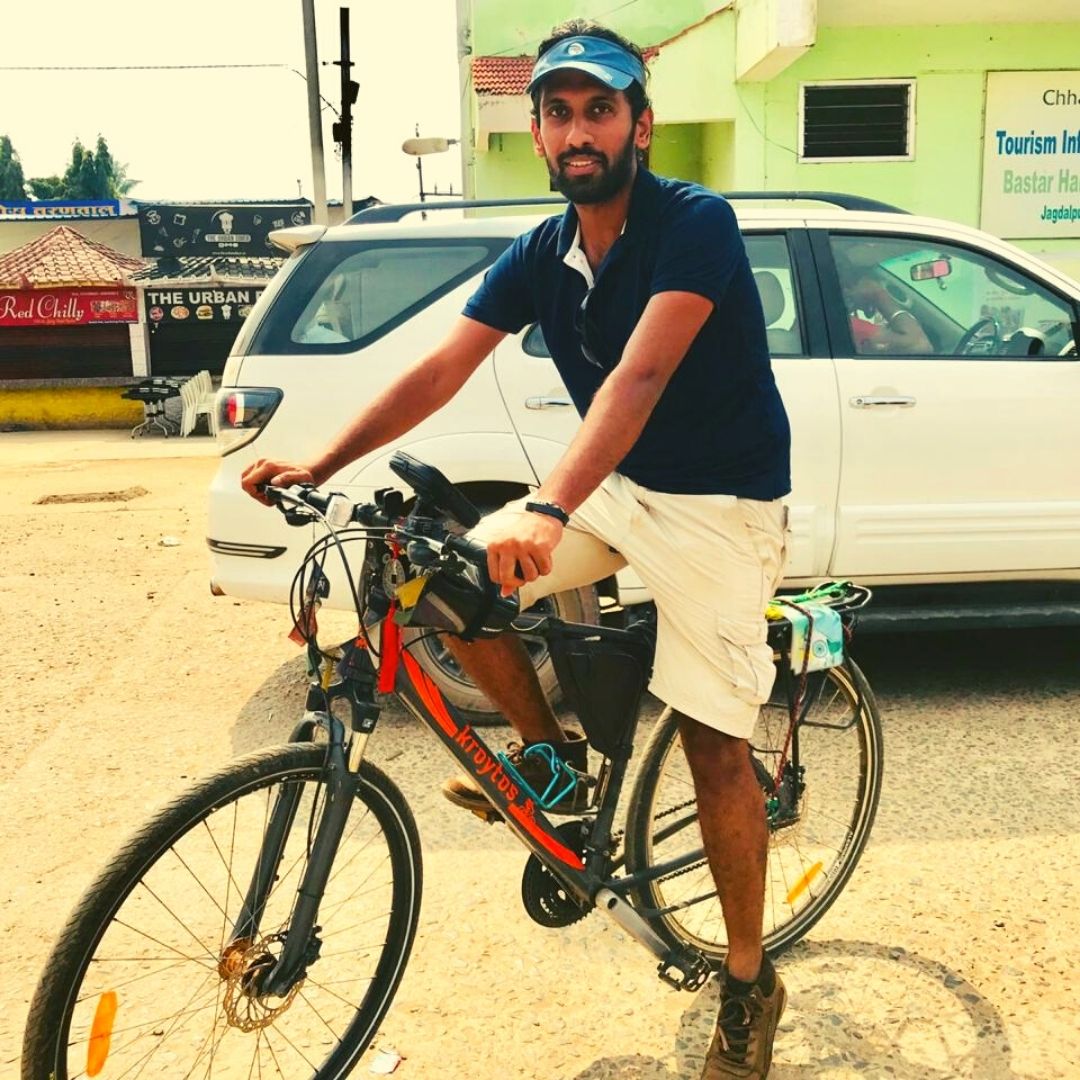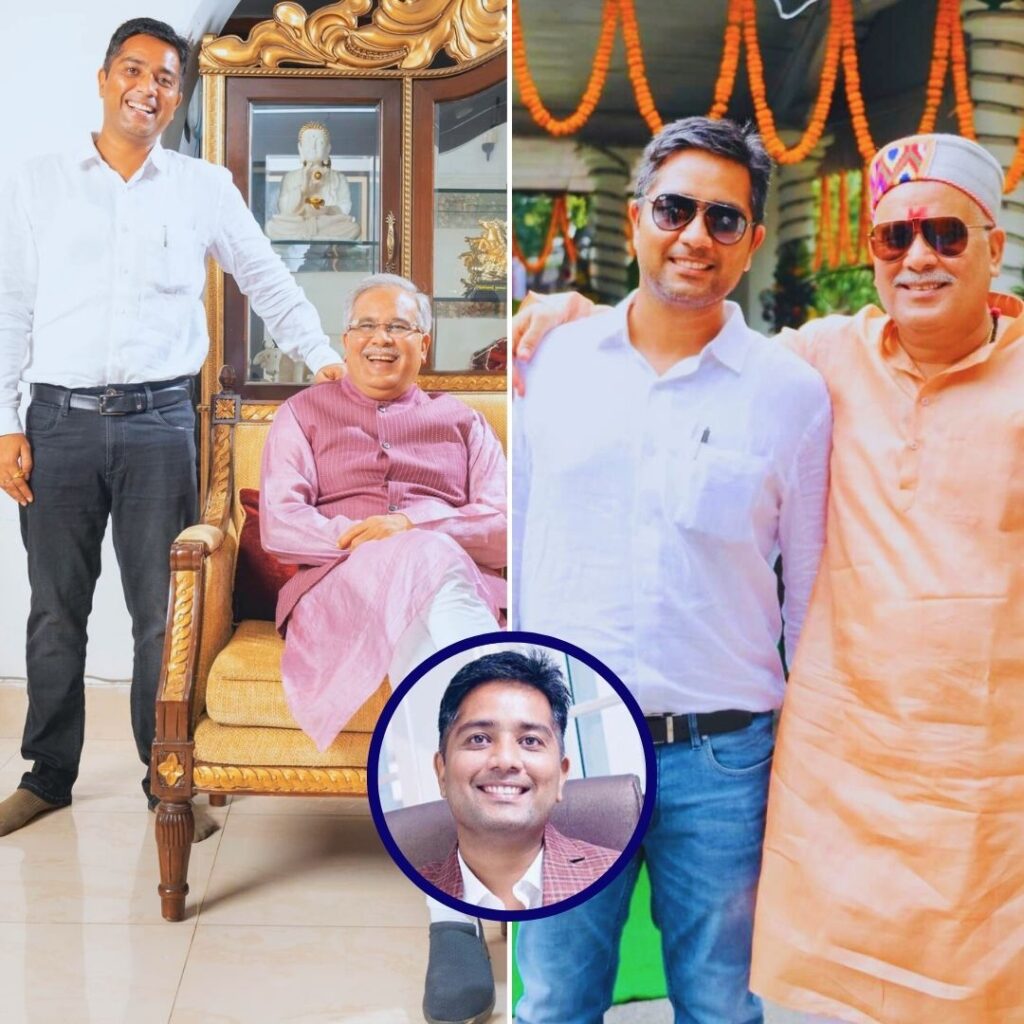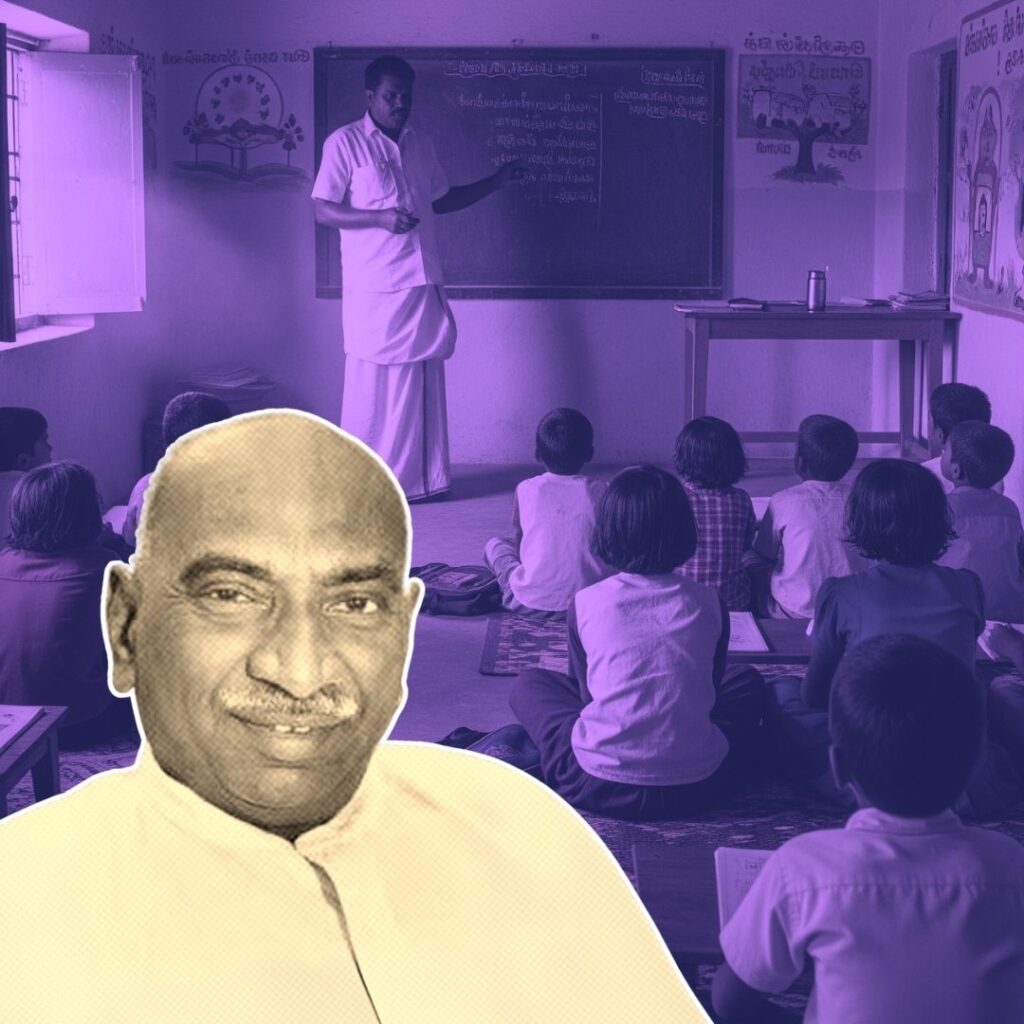I am a former journalist and I have been on a cycle journey for the past four years. After quitting my career in journalism, I discovered the authentic culture and life of the ordinary people of India and made self-sustainable communities in small villages and tribal communities.
After having secured my position in the Limca Book of Records and India Book of Records, I embarked on a bicycle journey through the length and breadth of the country. It has been over 1540 days now. I have seen half of India, covered 15 states in North, West, South and Central India, and 8 Union Territories. On the road, I discovered a new face of India — where organic farming flourished, an alternate education system enlightened young minds in creative ways and kindness was a way of life. This journey is about finding the forgotten stories of love and humanity which we have refused to accept. I have travelled to all these locations without any money for the past four years.

Recently I built a self-sustaining village in Krishnagiri, Tamil Nadu. A community where one can practice all sorts of arts, crafts, organic farming and build natural mud houses. A self-sustaining village in the heart of nature.
Building Mud Houses
I started organic farming and began building mud-houses, using organic materials like locally available red mud and brown mud, jaggery, honey, egg yolk, an ancient tribal house building technique. The homes enable cost-efficient thermal insulation, natural malleability while reducing their carbon footprint. All this I have learned during my journey and experiences with tribals and ancient wisdom of country.
I also made a big-sized mud sofa. Plastic waste recycling techniques were used in building mud houses and sofas. Bottle bricks were designed using plastic bottles stuffed with packet wrappers, which resembled traditional bricks. Alcohol bottles collected from nearby rivers and Hogenakkal waterfalls were used in the construction. Natural termite repellents were created by combining water with holistic herbs like neem leaves, kadukai seeds, green chilies, garlic, turmeric, and lime.

We have named the village – Innisfree farm.
We now have two mud houses in the farm, two wooden and thatched houses, two dry toilets, one mud sofa, and two mega size ponds for rainwater harvesting. We are also using wooden, coconut, and mud vessels in our kitchen which I have made from the waste wood and waste coconut shells. We are also practicing various art and craft with waste wood and coconut, which includes wooden chopping boards, coconut shell bowls, artistic face masks, and earrings, and that is also attracting the local villagers and ladies who are now interested in taking part in such activities.
Additionally, we are growing our own vegetables like spinach, tomatoes, green chili, okra, bitter gourd, and many fruit trees like mango, tamarind, and jackfruit. We are totally self-dependent for our vegetables and fruit supply.
Today, Innisfree farm reuses 100% of their waste to power eco-toilets, kitchens, electricity and even fodder for the local animals. The farm is a beacon of hope for the local community, providing employment as well as education to surrounding farmers.
The natural farm in Krishnagiri is also a school where we train and teach people traditional art like Madhubani, Gond, Pichwai, and wall paintings. I help in making organic soaps, kitchen compost. I also learned how to make kokedama, the Japanese art of growing a plant. We are also making wooden cutlery, kitchen items, and furniture from the waste coconut shells and waste wood from the villages. The villagers and youngsters are very keen to learn these practices.

We aim to spread the social message of environment protection and climate change, promoting the use of renewable energy and managing waste effectively. I hope that these actions will inspire people to conserve and protect the environment.
Helping Farmers
While pedalling across rural India, I engaged right from working with farmers to making wooden sculptures in Maharashtra and Bangalore, weaving khadi shirts, making mud houses for villagers of a remote hamlet in Anantapur district, Nagpur and Tamil Nadu, making coconut shell cutlery and jewellery, learning natural farming and forest conversation from the tribals, learning Thanjavur art, Madhubani art, tribal gond art to learning the 400-year-old wooden toy making art in Etikopakka, learning the rural arts — Kondapalli in Andhra Pradesh to making the musical instrument Veenas in Nuzividu; my journey has connected me with people in more ways than one.
My purpose now is to connect with communities and share the learnings I have received from farmers, tribals, weavers, potters, artists, sculptors, musicians, labourers, students, and urban families; with others like them.
This is a long continuous journey and there is a more significant reason for these travels—Love for the land and understanding who/what She is. I will continue my journey and cover the rest of India – learn, teach, farm, grow, drive the message of sustainable living, make mud-houses, revive forgotten and hidden Indian art and craft, help others lead a happy and sustainable life as I continue my journey of self-discovery.
I will be learning more about natural farming, natural houses from different parts of India and will be implementing that knowledge base to create more self-sustainable space or villages wherever I am visiting within India. I am documenting the everyday life of people from different walks of life in Indian society.
If you too have an inspiring story to tell the world, send us your story at mystory@thelogicalindian.com












